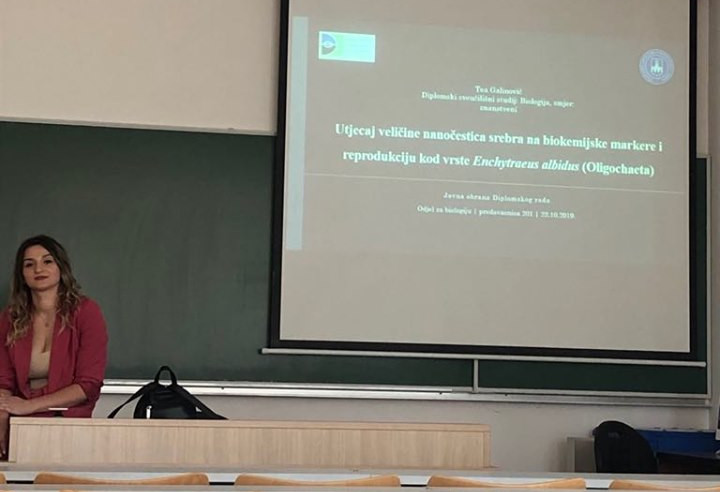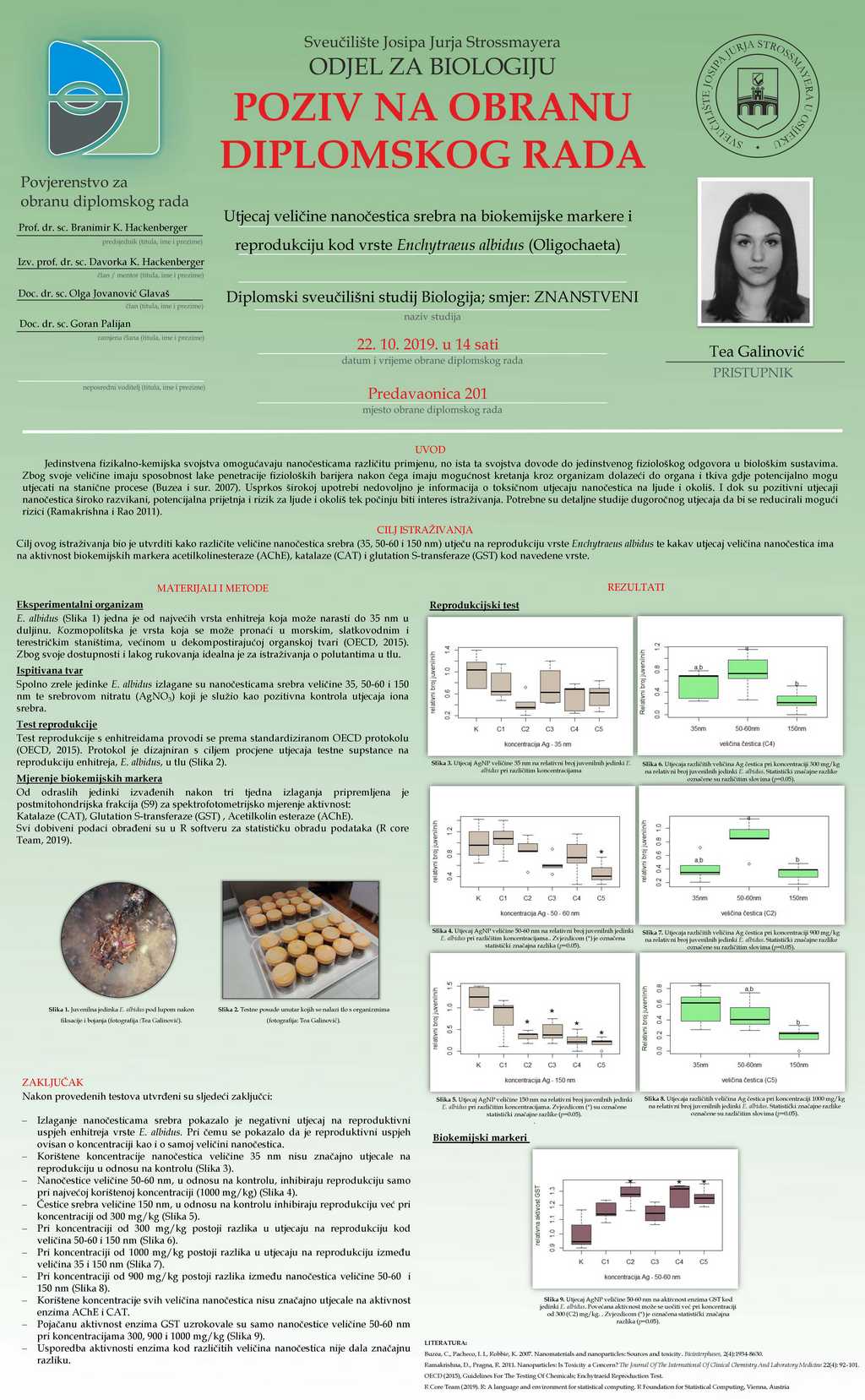A Master thesis
Tea Galinović, a student at the Department of Biology successfully defended her master thesis entitled: „Effect of silver nanoparticles size on biochemical biomarkers and reproduction of Enchytraeus albidus (Oligochaeta)“. This thesis has been made at the Department of Biology, Subdepartment of Quantitative Ecology, within the DEFENSoil project.
Mentor: Associate professor Davorka K. Hackenberger, PhD Komentor: Research assistant Željka Lončarić, PhD
Short Abstract: Nanoparticles can be easily transmitted to water systems, which leads to a greater risk of soil contamination. Because of their ability to enter cells and cause the interaction with cell structures, it is important to understand their behavior and destiny in the ecosystem. The aim of this research was to explore how different sizes of silver nanoparticles can influence the reproduction and biochemical markers (AChE, CAT and GST) in the Enchytraeus albidus species. Organisms were exposed to nanoparticles of 35, 50-60 and 150 nm size, as to silver nitrate (AgNO3), which served as control. Silver nanoparticles size 35 nm didn’t show statistically significant reproduction inhibition compared to control, while size 50-60 nm have shown inhibition at conc. 1000 mg/kg, and size 150 nm already at 300 mg/kg. Even though previous research indicate that smaller nanoparticles cause greater toxicity our results show different.


